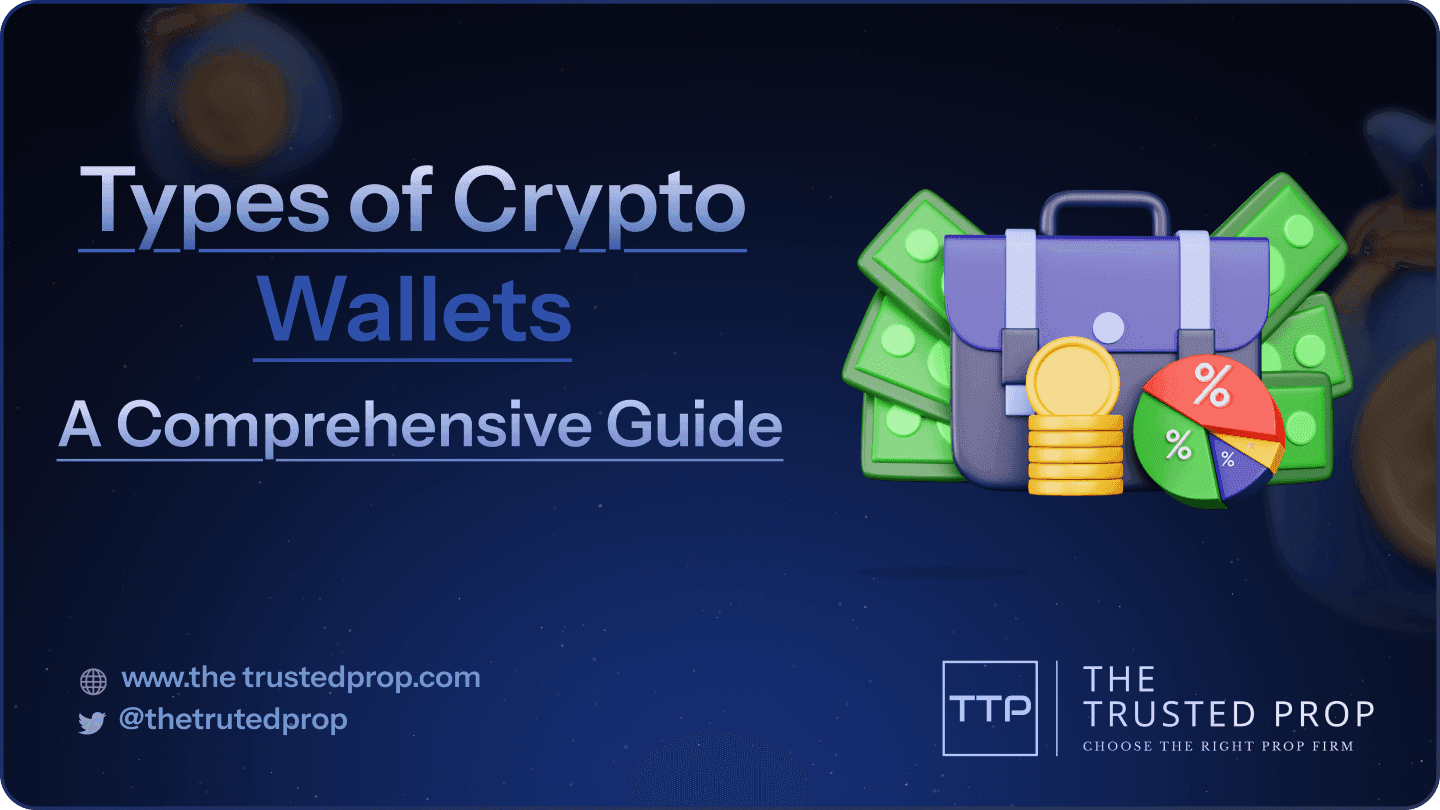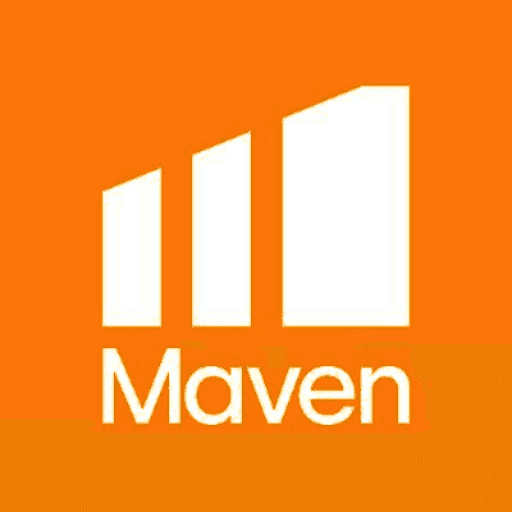Types of Crypto Wallets A Comprehensive Guide

Types of Crypto Wallets A Comprehensive Guide
11/26/2024
More than 420 million people worldwide use cryptocurrencies today. This massive adoption makes secure storage of digital assets crucial. Crypto wallets protect valuable digital assets through advanced encryption and security measures. These tools let users store, send, and receive cryptocurrencies safely.
This complete guide gets into the different types of crypto wallets - from easy-to-use hot wallets to secure cold storage options. You'll discover everything about web wallets, hardware devices, and paper wallets. The guide explains the key differences between custodial and non-custodial options. You'll also learn about security features that protect your assets from theft. These include two-factor authentication, private keys, and multi-signature capabilities.
Hot Wallets: Convenient but Less Secure
Hot wallets are the most available type of cryptocurrency storage solutions that work as software applications with constant internet connectivity. Trust Wallet leads this digital space with more than 130 million users across the globe.
Web Wallets
Web wallets are browser-based applications that connect smoothly with blockchain platforms. MetaMask stands out as a popular self-custodial wallet that lets users log in securely and manage tokens through browser extensions. Users can interact with decentralized applications (dApps) and retain control of their digital assets.
Desktop Wallets
Desktop wallets are applications built specifically for computer systems that provide boosted security features compared to web-based versions. These wallets come with strong security measures such as:
Seed phrase protection
Two-factor authentication (2FA)
Multi-signature capabilities that need multiple approvals
Integration with hardware wallets to add more security
Desktop solutions like Exodus give users detailed functionality with built-in swap features and portfolio management tools. However users need proper computer security measures because the wallet's security depends directly on the device's protection.
Mobile Wallets
Mobile wallets blend convenience with functionality and let users manage their cryptocurrency portfolios right from their smartphones. These apps make instant transactions possible and work with multiple cryptocurrencies like Bitcoin, Ethereum, and various altcoins. Trust Wallet and other mobile solutions come with these key features:
| Feature | Benifit |
| WalletConnect v2 | Smooth connection with dApps |
| Fiat payment processing | Buy crypto easily |
| Multi-chain support | Use different blockchain networks |
| Exchange integration | Trade directly from your wallet |
Security remains crucial for all hot wallet types. These wallets make day-to-day transactions convenient, but users should know that staying online frequently makes them more vulnerable to cyber-attacks. Expert advice suggests keeping only small amounts of cryptocurrency in hot wallets for trading and daily transactions, with larger amounts stored in more secure options.
Users can better protect themselves by using strong passwords and turning on all security features while keeping their wallet software up to date. Your device's security also needs anti-virus software, and you should avoid downloading suspicious files that could expose vulnerabilities.
Cold Wallets: Maximum Security for Long-Term Storage
Cryptocurrency investors can maximize their security through cold storage solutions that keep private keys completely offline. This trailblazing technology in crypto security provides better protection from cyber threats and unauthorized access.
Hardware Wallets
Hardware wallets are specialized devices that secure cryptocurrency private keys. They look similar to USB drives and cost between $50 to $200. These physical devices offer multiple security layers:
Encrypted offline key storage
PIN protection systems
Built-in security elements
Recovery seed phrase backup
Major hardware wallet makers have built complete security features. The Ledger Nano series works directly with management software to control assets smoothly. Trezor's Model T has microSD card encryption that boosts PIN security. The Ellipal Titan uses air-gap technology and stays physically, electromagnetically, and electrically isolated from networks.
| Feature | Hardware wallets | Paper wallets |
| Security Level | Multi-layer encryption | Simple offline storage |
| Recovery Options | Seed phrase backup | No recovery if Damaged |
| Transcation | Direct device connection | Manual key entry requried |
| Durability | High physical resistance | Vulnerable to environmental damage |
Paper Wallets
Paper wallets are the simplest form of cold storage that use printed documents with public and private keys. These wallets provide complete offline security, but users need to think about several crucial factors:
The creation process demands specific safety steps:
1.You must use offline computers to generate keys
2.You should follow secure printing protocols
3.Your documents need waterproof and fireproof containers
4.You must keep multiple backup copies in secure locations
Paper wallets might seem straightforward, but they come with most important risks. Users could permanently lose their cryptocurrency if the document gets damaged, becomes unreadable, or goes missing. These wallets also work with limited cryptocurrency types and can't keep up with new network developments.
Many investors use deep cold storage techniques to boost security. They combine cold wallet solutions with extra protective measures like bank vaults or secure deposit boxes. This layered strategy gives maximum protection to long-term cryptocurrency holdings while you retain control over your funds.
Your choice between hardware and paper wallets depends on what you need for security, and access, and how often you trade. Hardware wallets strike a balance between security and usability. Paper wallets work best for people who rarely touch their cryptocurrency holdings.
Custodial vs Non-Custodial Wallets
Private key control creates a fundamental difference in cryptocurrency storage access. Users can choose between custodial and non-custodial solutions based on their security priorities. These wallet categories serve unique purposes in managing digital assets effectively.
Advantages and Disadvantages of Custodial Wallets
Custodial wallets, managed by third-party providers, give newcomers the most important benefits in cryptocurrency. These platforms helped users save about $500,000 in network fees during 2019. The advantages include:
| Feature | Benefit |
| Account Recovery | Users can restore access easily if they lose their credentials |
| User Experience | Easy-to-use interface that helps beginners |
| Additional Services | Users can trade,stake and lend their assets |
| Security Management | Professional teams oversee your funds |
These solutions come with notable drawbacks. The Japanese exchange Mt. Gox lost about $450 million through security breaches. Binance users lost $570 million due to a security compromise.
Key limitations include:
1.Users must complete KYC (Know Your Customer) verification
2.Your account might face freezes or restrictions
3.You depend on third-party security measures
4.You need an The easy-to-useinternet connection to access funds
Benefits and Risks of Non-Custodial Wallets
Non-custodial wallets support cryptocurrency's core principles of decentralization and user autonomy. Recent data shows that 66.5% of crypto holders choose non-custodial and mobile storage solutions. This trend shows users' growing confidence in self-custody options.
These wallets offer:
1.Complete control over private keys
2.Better privacy without KYC requirements
3.Direct blockchain interaction
4.Offline transaction signing capabilities
The security structure of non-custodial wallets uses advanced encryption processes. The wallet creates a unique cryptographic private key at the time users set up an account. This key stays protected through:
1.Password encryption
2.Local device storage
3.Offline key generation
4.Biometric authentication options
Users must take full responsibility for their assets despite these security measures. The biggest risks include:
1.Permanent loss of funds if private keys are lost
2.Limited customer support options
3.Complex user interfaces
4.No standardized recovery methods
All but one of these wallets use a 12 to 24-word recovery phrase system. This system acts as a crucial backup method. Anyone who has access to this seed phrase can get complete control of the associated funds.
These wallets include extra protective features to boost security:
1.Two-factor authentication (2FA)
2.Biometric verification
3.Secure enclave encryption
4.Multi-signature requirements
Choosing the Right Crypto Wallet for Your Needs
Users need to evaluate multiple factors when choosing a cryptocurrency wallet. Research reveals that 84% of crypto security incidents happen because of poor wallet selection or management. A clear understanding of these significant factors helps users make better decisions that match their needs.
What to Think About When Choosing a Wallet
The selection process starts when you assess several critical components that affect wallet functionality and security. Research shows that 92% of cryptocurrency users place wallet security features at the top of their priority list.
| Selection Factor | Key Considerations |
| Security Level | Two-factor authentication,encryption standards |
| Asset Support | Number of supported cryptocurrencies |
| User Interface | Ease of use , feature accessibility |
| Recovery options | Backup mechanisms seed phrase management |
| Fee Structure | Transcation costs,exchange rates |
| Development Support | Regular updates technical maintenance |
Software wallets that support multiple blockchain networks show 45% higher user retention rates. You should check if a wallet works with your preferred cryptocurrencies since no single solution supports all digital assets available today.
Popular Wallet Options
Recent market analysis shows clear priorities among different user groups. Hardware wallets like Ledger and Trezor lead the security-focused segment with prices between $69 and $255. These devices provide several benefits:
Offline private key storage
Multi-currency support
Integration with software interfaces
Regular firmware updates
The user base for software wallets continues to expand. Non-custodial solutions have seen a remarkable 300% growth since 2020. Each popular option brings unique advantages:
MetaMask: This wallet excels in Ethereum and ERC-20 tokens and features deep dApp integration. Trust Wallet: Users can access more than 70 blockchains with complete mobile functionality. Exodus: The platform handles 364 cryptocurrencies and includes built-in exchange features.
Security Best Practices
Strong security measures reduce the risk of unauthorized access by a lot. Wallets that use two-factor authentication have 73% fewer security breaches.
Everything in security protocols includes:
1.Private Key Management
Store backup copies in multiple secure locations
Never share private keys electronically
Use encryption for digital storage
2.Regular Security Updates
Install wallet software updates promptly
Maintain current device security patches
Review security settings periodically
Users who use multi-signature functionality reduce unauthorized transaction attempts by 89%. Hardware wallets boost protection, and experts recommend them to store amounts over $5,000.
Cryptocurrency fraud has increased 300% each year since 2016 according to the Federal Trade Commission. This shows why complete security measures matter so much. Users should check their wallet providers' reputation and security history before trusting them with digital assets.
Biometric authentication and secure enclaves add more protection layers. Wallets with these features show a 65% lower compromise rate compared to standard security setups.
Conclusion
Choosing a cryptocurrency wallet is a crucial decision that needs to balance security with everyday use. Different wallet types serve unique purposes. Hot wallets make quick transactions and dApp interactions possible. Cold storage options will give you strong security measures to protect large holdings. You can arrange your choice between custodial and non-custodial options based on your priorities for control and convenience.
Security matters deeply in wallets of all types. The way you implement security determines how safe your digital assets will be. You need to think over your specific needs to pick the right storage solution. This includes how often you trade, what assets you hold, and what security features you need. A complete strategy for cryptocurrency storage and good security practices will help you manage your digital assets confidently while protecting them from threats.
You may also like
The5ers Payout Rules, Profits & Withdrawals (2026 Guide)

Goat Funded Trader Instant Goat Account Explained (2026)
.jpg&w=1920&q=75)
Goat Funded Futures Rules for Challenge and Funded Phase (2026)

My Funded Futures Flex Challenge Explained (2026 Guide)

Moneta Funded Detailed Review 2026: Our Honest Verdict

Evercrest Funding Detailed Review 2026: Our Honest Verdict

Breakout Prop Detailed Review 2026: Our Honest Verdict

No FAQs are available for this topic yet.






















